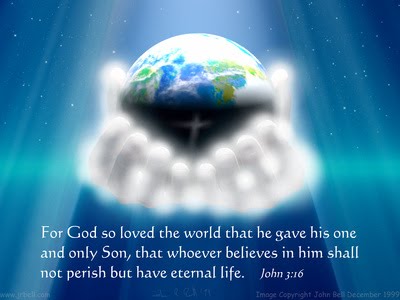LIVING A CHRISTIAN LIFE OF LOVE
THE SEED
“For God so loved the world that he gave his only begotten Son, that whosoever believeth in him should not perish, but have everlasting life.” — John 3:16 (KJV)
As Christians, we are called to love one another and to follow God’s example. Love is the foundation of our faith, demonstrated by God when He gave His only Son for our redemption. Our Christian identity should be evident through our love. Even if we excel in religious practices; prayer, Bible study, church attendance, tithing, or manifesting spiritual gifts, if we lack love, we miss the heart of Christianity (1 Corinthians 13:1–3). Love is a daily choice and should define our every action. To live a life of love, we must embrace the Spirit of God, who enables us to love as He does. When we prioritise spending time with God, we begin to love Him, ourselves, and others with genuine joy. By reflecting on His mercy and forgiveness, we learn to extend grace, act with kindness, and serve selflessly. A life of love involves putting others before ourselves, forgiving without resentment, giving without expecting anything in return, and showing kindness even when undeserved. It is about choosing selfless actions over selfish desires. God’s love is limitless, and when we draw from His abundant love, we find the strength to love unconditionally. This divine love, revealed through Christ’s sacrifice, empowers us to be a light in the world.
BIBLE READING: Matthew 22:37–39
PRAYER: Lord, help me to live a life of love, growing in my relationship with You and others. Amen.
GBÍGBÉ ÌGBẸ AYẸ KRISTIANI TI ÌFẸ́
IRUGBIN NAA
“Nítorí Ọlọ́run fẹ́ràn ayé tó bẹ́ẹ̀ gẹ́ẹ́ tí ó fi fi Ọmọ bíbí rẹ̀ kan ṣoṣo fúnni, pé ẹnikẹ́ni tí ó bá gbà á gbọ́ kì yóò ṣègbé, ṣùgbọ́n yóò ní ìyè àìnípẹ̀kun.” — Jòhánù 3:16 (KJV).
Gẹ́gẹ́ bí Kristiani, a jẹ́ ẹni ití a pè láti fẹ́ràn ara wa àti láti tẹ̀lé àpẹẹrẹ Ọlọ́run. Ìfẹ́ ni ìpìlẹ̀ ìgbàgbọ́ wa, tí Ọlọ́run fihàn nígbà tí Ó fi Ọmọ rẹ̀ kan ṣoṣo fún ìràpadà wa. Ìdánimọ̀ Kristiani wa yẹ kí ó hàn nípasẹ̀ ìfẹ́ wa. Kódà tí a bá gbajúmọ̀ nínú àwọn ìṣe ẹ̀sìn; àdúrà, kíka Bíbélì, lílọ sí ile ìjọsin, ìdámẹ́wàá, tàbí fífi àwọn ẹ̀bùn ẹ̀mí hàn, tí a bá ṣe aláìní ìfẹ́, a pàdánù ọkàn Kristiẹnì (1 Kọ́ríńtì 13:1–3). Ìfẹ́ jẹ́ ìyàn lójoojúmọ́ ó sì yẹ kí ó ṣe àpèjúwe ìṣe wa gbogbo.
Láti gbé ìgbé ayé ìfẹ́, a gbọ́dọ̀ gba Ẹ̀mí Ọlọ́run, tí ó ń fún wa láàyè láti fẹ́ràn bí Òun ti ṣe. Nígbà tí a bá fi ìṣáájú fún lílọ àkókò pẹ̀lú Ọlọ́run, a bẹ̀rẹ̀ sí ní fẹ́ràn Rẹ̀, ara wa, àti àwọn ẹlòmíràn pẹ̀lú ayọ̀ tòótọ́. Nípa rírò lórí àánú àti ìdáríjì Rẹ̀, a kọ́ láti fún ni ní oore- ọ̀fẹ́, ṣe pẹ̀lú ìrẹ̀lẹ̀, kí a sì ṣe iṣẹ́ láìjẹ́ aláwopọ̀n. Ìgbé ayé ìfẹ́ wà nínú fífàyè gba àwọn mìíràn ṣáájú ara ẹni, fífúnni ní ìdáríjì láìsí ìbínú, fífúnni láìretí ohun padà, àti fífi ìrẹ̀lẹ̀ hàn kódà nígbà tí kò yẹ. Ó dá lórí yíyan àwọn ìṣe àìlẹ́mìí ju àwọn ìfẹ́kúfẹ̀ẹ́ imotaraeni nikan. Ìfẹ́ Ọlọ́run kò ní ààlà, nígbà tí a bá fa láti ìfẹ́ rẹ̀ tí ó pọ̀, a rí agbára láti fẹ́ràn láìní ìdíwọ́. Ìfẹ́ ìbátan yìí, tí a fihàn nípasẹ̀ ẹbọ Krístì, fún wa ní agbára láti jẹ́ ìmọ́lẹ̀ ní ayé.
BIBELI KIKA: Mátiù 22:37–39.
ADURA: Olúwa, ràn mí lọ́wọ́ láti gbé ìgbé ayé ìfẹ́, níní ìdàgbàsókè nínú àjọṣe mi pẹ̀lú Rẹ àti àwọn mìíràn. Àmín.
